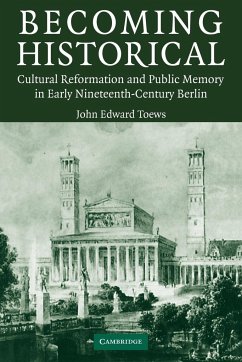
Becoming Historical
Cultural Reformation and Public Memory in Early Nineteenth-Century Berlin

PAYBACK Punkte
32 °P sammeln!
Examines the ways in which selfhood and cultural solidarity came to be understood in 1800s Vienna.

Cultural Reformation and Public Memory in Early Nineteenth-Century Berlin

Rechnungen
Bestellstatus
Retourenschein
Storno